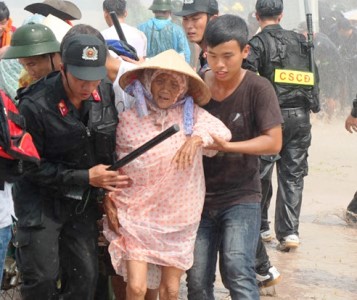
Plans to rescue and evacuate people out of flooded
areas are checked
Since early 2020, natural disasters have continued
to develop in an extreme and unusual way. Seven storms and hail over a large
area across the country have occurred; severe droughts and saltwater intrusion
in the Mekong delta have persisted, showing that climate change is developing
extremely complicatedly. In late April 2020, natural disasters killed and caused
11 people to be missing, and more than 44,000 houses to collapse and damaged
more than 100,000 hectares of rice and crops with a total economic loss of over
VND3,100 billion.
In 2019, natural calamities did not take place
rapidly and fiercely but there occurred a lot of extreme and anomalous factors
throughout the country. Particularly, the damage caused by natural disasters in
2019 was over VND7,000 billion, considerably decreased compared to the estimated
damage in 2018, which was estimated at nearly VND20,000 billion; natural
disasters killed and caused 133 people to be missing. To prevent natural
disasters and ensure the four on-the-spots motto, on-site forces play a key role
in responding quickly and promptly to support and help people.
Also, the State Prime Minister Nguyen Xuan Phuc
said: “Grassroots-level assault forces must be trained and communes must be
instructed to focus on establishing assault forces to deal with rapidly-coming
floodwater and so on and these are extremely valuable examples.”
According to the National Center for
Hydro-meteorological Forecast, from now to the end of 2020 there will be about
11 to 13 storms and tropical depressions operating in the South China Sea, 5 to
6 storms of which directly affect the mainland and storms are mainly
concentrated in central and southern regions in the second half of 2020. To
minimize people’s damage, forecasting and disseminating propaganda information
at grassroots levels must come first.
Duy Minh (Van Minh)